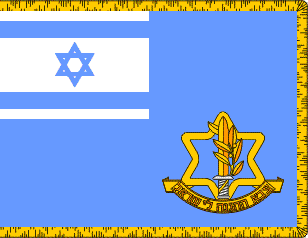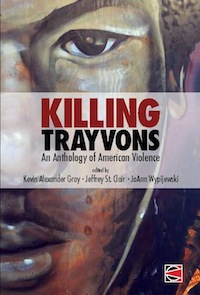Violence and Resistance in Palestine
An African-American Perspective

For the many thousands of tourists who fly into Israel/Palestine every year, landing in the modern Ben-Gurion airport in Tel Aviv marks the beginning of a great adventure in the “holy land.” But for members of the “African Heritage” delegation, flying into Ben-Gurion was fraught with tension and foreboding. Before departing the U.S. on October 27, our delegation rehearsed how we would move and act, role-playing what to say and what to avoid when we would face Israel’s first line of defense – its custom officials at the airport.
The normally simple act of landing, showing that prized blue book that is the U.S. passport and passing effortlessly through customs and into the country, was something that we understood might not be automatic for us. And indeed it wasn’t – within an hour of our landing our delegation’s co-leader, a young Palestinian woman, was detained. We later found out that she was interrogated, held overnight, and deported the next day.
As our delegation slowly made its way through Israel’s entry process those first couple of hours at the airport, we did not quite grasped that our experience at the airport would not be the first of the strange dualities that we would experience and witness of life in Israel/Palestine. The gaggle of wide-eyed excited tourists that were happy to be in the country greatly contrasted with our already lived experience of Israel as a police state on guard against all threats, real and imagined.
The delegation and program
The African Heritage delegation was made up of activists, educators, journalists, clergy, students and folks representing the full spectrum of African American life in all of its diversity. Sponsored by the Interfaith Peace Builders, an organization of dedicated young activists experienced in organizing delegations to Israel/Palestine, the individual members of our delegation had various positions and motivations for being a part of the delegation. But a genuine feeling of solidarity with the plight of the Palestinian people and a desire to better understand the situation in order to share what we observed with our constituencies where we lived and worked emerged as the common denominator that united most of us.
Our ambitious agenda included meetings and visits that took us across the country. From East Jerusalem to “Israel proper” through to the West Bank and down to the Negev desert, we met with peace activists, political activists, clergy, the settler community of Hebron, Palestinian-Arab Bedouin women, and lived with Palestinian families in Bil’in and the Deheisheh refugee camp. It was an exhilarating and emotionally exhausting experience that touched us all in very personal ways.
The never ending conflict?
The deeply troubling impression that I came away with was that a negotiated, relatively “peaceful” resolution of the conflict is impossible and that those individuals who believe that the Israeli state would grant sovereignty and respect the human rights of Palestinians within the context of either a one or two state solution are either naive regarding the nature of Israel’s settler project or fundamentally dishonest.
The obscene level of investment in the infrastructure of repression in the occupied territories along with the most aggressive settlement policies since the 67 war clearly demonstrates that the Israeli state has no interest in a negotiated settlement with Palestinians.
Indeed the “facts on the ground” all point toward policies of permanent control of Palestinian life and land. Those facts include the over six hundred thousand Israeli settlers in the West Bank and settlement expansion into Palestinian East Jerusalem, the so-called security wall that is more an enclosure wall to expropriate Palestinian land, and the emergence over the last 15 years of a right- wing, militarized Israeli civil society symbolized by the popular support given to the governing coalition anchored by the right-wing Lukid party. These facts coupled with the complete collapse of what is referred to as liberalism within Israel, suggest that the current political alignments and power relations shatter any illusions that a domestic constituency strong enough to counter the hegemony of the Zionist positions exist anywhere in Israel.
On the Palestinian side, there are deep divisions among the leadership of Hamas and Fatah, the two main Palestinian organizations, despite the so-called unity government that was established in June of this year. I was struck by the number of people who have lost all faith in the Palestinian authority created out of the Oslo process. Yet at the level of the “people,” Palestinians living in the occupied territories are still united in their steadfast commitment to resist the occupation.
Unity on the issue of Palestinian resistance stems primarily from the daily indignities of life under military occupation and the repressive brutality that is a permanent feature of Palestinian life. Our delegation observed and experienced, if only briefly, life under military occupation as we moved through military checkpoints throughout the country but especially in the West Bank.
In the village of Bil’in, a community in resistance that was documented in the Academy Award nominated film “Five Broken Cameras,” our delegation was hosted by the village’s popular resistance committee. As part of our visit we were taken down to the separation wall or what many of us call the apartheid wall. Without provocation or warnings of any kind, the delegation suddenly found itself on the receiving end of a barrage of Israeli gas grenades. After having to run back to our cars through gas, we were informed by our hosts that since the authorities were aware that internationals  were in the town for the night we should be aware that there was a possibility that soldiers might raid houses that night to arrest us, something that has happened before.
were in the town for the night we should be aware that there was a possibility that soldiers might raid houses that night to arrest us, something that has happened before.
Two days later, we once again experienced the duality of experiences reflected in the lives and positions of Palestinians. In the morning we met with the Holy Land Trust, an organization that is committed to developing what it calls a spiritual, pragmatic and strategic approach to the ongoing conflict. It sees its work of reconciliation between Palestinians and Jews as a viable model for realizing a joint community that respected each other and was committed to justice, political equality and peaceful coexistence. That evening, however, we stayed in the Deheisheh refugee camp, a camp located near Bethlehem that was established after the expulsion of the more than 750,000 Palestinians in the war of 1948 that resulted in the creation of the state of Israel. Our hosts at Deheisheh were clear that for them, peaceful coexistence was impossible in a settler-colonial context that did not allow them to recoup all of the land that they argue was stolen by the Israeli state.
A week after returning from the super-charged, repressive environment that is Israel/Palestine, it is not surprising that Jerusalem is now being consumed by an intensification of violence. From what I observed, the allegations that Israeli settlers lynched Yousuf al-Ramouni, a Palestinian bus driver in Jerusalem that then sparked the retaliatory killing of four Israeli’s, is not surprising nor beyond the realm of possibility. Settler and state violence are central components of the colonial project. And violence as part of Israel’s colonial project has always been strategically deployed. It is used as a means of social control but by manipulating issues to evoke Palestinian resistance it is used to support Israel’s narrative as victim. Israeli Prime Minister Ariel Sharon adroitly used this device to provide the pretext for destroying the last vestiges of theOslo process and the functionality of the Palestinian Authority. In the aftermath of the disastrous assault on Gaza that resulted in a public relations defeat for Israel and has even led to some European governments to recognize a Palestinian state, it appears that the government of Benjamin Netanyahu has gone back to the Sharon playbook. The closure of the A-Aqsa Mosque a few weeks ago had the predictable results of Palestinian Muslim resistance that Israel is attempting to use to its advantage.
The consciously provoked violence in Jerusalem also has another effect. It diverts attention away from political and material basis of the “conflict” – Israel’s brutal occupation and illegal theft of Palestinian land.
As one activist framed the political conundrum: “if a two state solution in which Palestinians were offered the 28% land mass of historic Palestine with borders between this state and Israel that approximated the 67 green line and a just solution to Palestinian refugees as part of the Oslo process in the 90s, it would have been hard to accept but it might have been viable.” But for this activist and many others in Palestine, it is now clear that the Israeli state never intended to seriously consider establishing a viable Palestinian state or resolving the issue of Palestinian refugees in a just manner.
Difficult as it was, traveling to Palestine and seeing first hand the realities on the ground was a political necessity and an eye opener. One can read about the repression, the growing expressions of racism, and see images from time to time of Israeli brutality, but nothing really prepares you for being thrust into that oppressive reality. And for those of us who reside in oppressive communities where our lives and dignity are also under constant attack, we can feel the humiliation and degradation experienced by Palestinians which after a few days becomes emotionally overwhelming.
During my activist life I have traveled to many of the counties that Western colonial/capitalist leaders characterized as despotic totalitarian states – the old Soviet Union, North Korea, Cuba before 1989 – but in none of those states did I witness the systematic mechanism of population control and scientific repression that I witness in “democratic” Israel. The security walls, towers, checkpoints, and armed settlers created an aura of insecurity and impending assault on one’s dignity at any time. I left that space wondering how anyone with a modicum of humanity and any sense of morality could reconcile living in that environment from the spoils of Palestinian dispossession and degradation and how any nation could support the Israeli political project.
Ajamu Baraka is a human rights activist, organizer and geo-political analyst. Baraka is an Associate Fellow at the Institute for Policy Studies (IPS) in Washington, D.C. and editor and contributing columnist for the Black Agenda Report. He is a contributor to “Killing Trayvons: An Anthology of American Violence” (Counterpunch Books, 2014). He can be reached at [email protected] and www.AjamuBaraka.com

